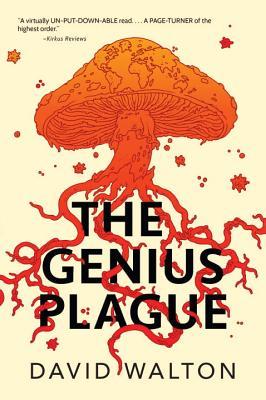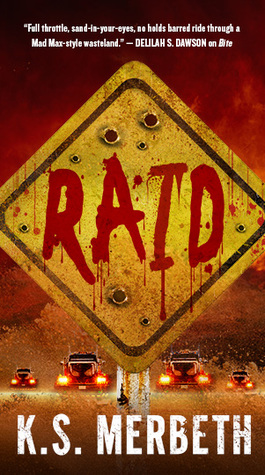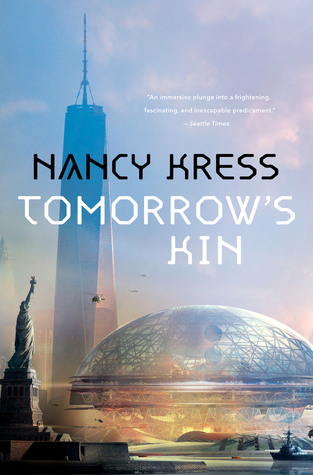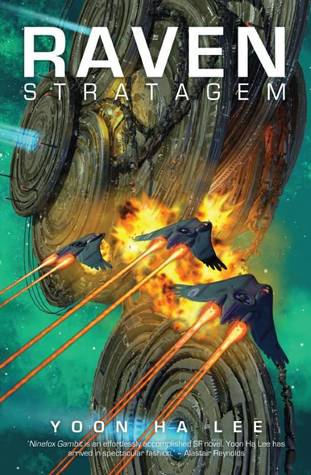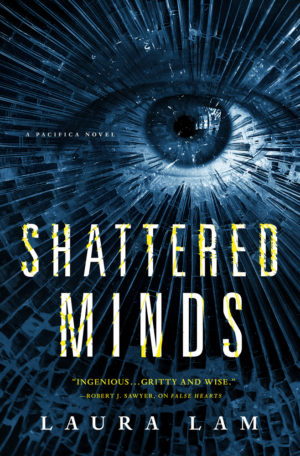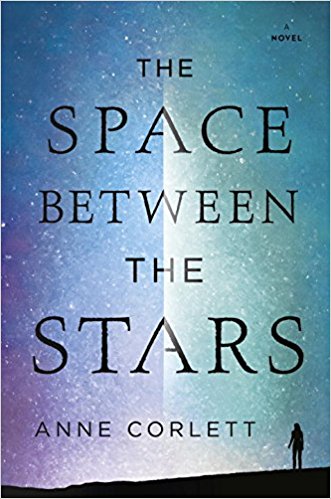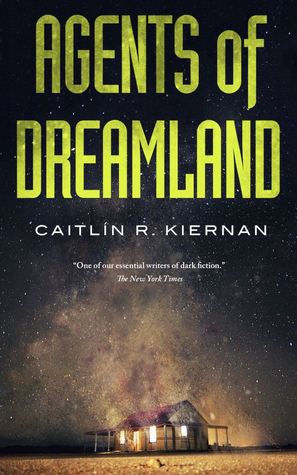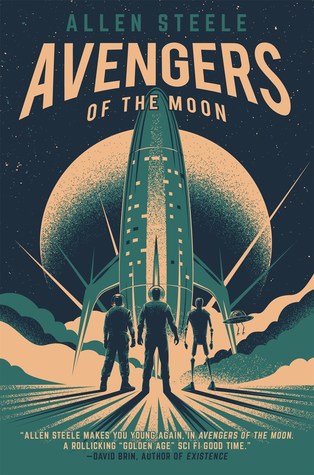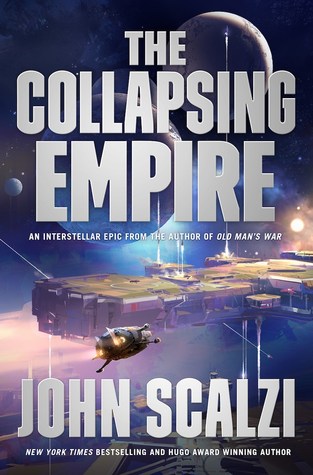Mother Nature can be a scary bitch. Forget horror movies; if you ever want to see some truly messed up, freaky bone-chilling stuff, look no further than your BBC nature documentary. Case in point: the “Jungles” episode of Planet Earth. After so many years, that infamous scene of the killer parasitic fungus bursting forth from the back of a dead ant’s head like some kind of grotesque alien worm still gives me the heebie-jeebies—and clearly, I’m not the only one who feels this way. From The Last of Us to The Girl with All the Gifts, a great number of books, movies, and video games have come out in recent years to show us just how screwed humanity would be if we ever went to war with Kingdom Fungi. Which was why, when I first found out about the premise of The Genius Plague by David Walton, I was immediately intrigued. After all, like in most of the examples I mentioned above, being infected with a fungal plague usually meant very bad things—like turning into a mindless, slavering zombie, for one. Yet in this case, the fungus actually made you…smarter? This was definitely a new angle for me, and I…
In Raid, Merbeth takes us back to the wastes where we can see all the violence and messiness that comes with it. If you haven’t read Bite, I can sum it up as a post-apocalyptic type, mad max type of world. With cannibals (or sharks as they are called in the books). It can be an isolating world, and the perspective of Clementine really highlights this. She hunts raiders, who destroy and endanger towns, but it also actually feeds her isolation. People may be happy for her work killing raiders, but her ability to do so is alarming. Clementine is not exactly a person anyone would like to be the “girl next door”. She came in to violence at a very young age, and discovered she had quite a knack for it. While it earned respect and admiration of her fellow townsfolk, once on her own, she never could find quite where she fit in. She takes to violence and killing almost too easily, her ability to take another’s life can be quite disarming to normal folk, but it is also how she survives and how she knows to make her world at least a little bit better (by taking…
I’m always up for a good tale of alien first contact, and Tomorrow’s Kin definitely fit the bill. Expanding upon the author’s Nebula Award-winning novella Yesterday’s Kin, this book is told in multiple sections, first chronicling the arrival of the extra-terrestrials before exploring the far-reaching repercussions in the latter parts of the novel. It is New York City, sometime in the near future. Humanity now knows for certain they are not alone in universe. When the “Debnebs” first arrived, people were scared—understandably. But as time passed and the aliens proved themselves to be peaceful, life on Earth returned to relative normalcy. The visitors even had their Embassy ship parked on a platform in the middle of New York Harbor, even though pretty much everything about them still remains a great mystery. At first, they would only speak to the United Nations, claiming that their physiologies were too different to withstand Earth’s atmosphere and thus they must stay on their ship. No one has any idea what they look like, or what they want. But suddenly, two months later, they are finally ready to talk. For Dr. Marianne Jenner, the invitation to the Debneb Embassy comes as one of the biggest surprises…
Kel Cheris, half-possessed by the ghost of notorious General Shuos Jedao, survived an assassination attempt that wiped out her entire fleet. Or did she? Physical appearances aside, it appears to be Jedao who usurps command aboard the Hierarchy of Feasts. Formation instinct compels the Kel to follow Jedao – but will he really defend the Hexarchate from the Hafn? Or will he betray them to their deaths? Ninefox Gambit was one of my favourite books last year, although not all reviewers shared my enthusiasm for its unapologetically oblique world-building and its obsession with the ethics of war. In Raven Stratagem, the core dilemma is much the same – can the ghost of the mass-murdering general be trusted? – but this time we see the action strictly through outside eyes. Enter General Kel Khiruev, tormented by her enforced loyalties to both the Hexarchate and – unwillingly – to Jedao as her superior officer. Haunted by childhood memories of her mother executing her father for heresy, it’s only Kel formation instinct that suppresses her doubts about the Hexarchate. When Jedao arrives, she can’t resist the urge to obey him even knowing Kel Command wants him dead. By contrast, Lieutenant Colonel Kel Brezan has weak…
Before even starting to review Borne just let me ask you to take a look at the cover I’ve chosen. It’s strangely hypnotic isn’t it, you want to look at it, to make sense of it, just turn it around slightly or turn it upside down even. I suppose there’s something in us all that makes us want to find the sense of something, figure out the puzzle and give it a name we understand. Frankly, I couldn’t make sense of the image on the cover and having read the book I’m still not entirely sure what is being depicted, but, in spite of that, I love the cover, it drew me in and held my attention and more than that is a great representation for this book because I don’t think there is any one fixed image – for me, the point is the image could be anything that your mind comes up with whilst reading this. I was compelled by this read. I was partly scared to pick it up because I always make the assumption that I’m not going to fully grasp what’s actually going on, but, as I was reading I began to appreciate that it…
Carina Kearney is a rising star at Sudice Inc, a gifted neuroprogrammer on a highly sensitive research project to record the lived experience: senses, feelings, memories. She’s also a cold-blooded killer. Scared of her urges, Carina flees her job and embraces Zeal addiction instead, drowning herself in drug-induced sprees of virtual murder. But her mentor Roz has ambitions far beyond brain recording, and Carina is key to her success. How can Carina escape her in a near-future California where any brain can be hacked? And can she ever escape herself? Shattered Minds is a companion novel to last year’s excellent False Hearts, set once again in Laura Lam’s Pacifica – a crime-free, poverty-free near-future California shaped by ubiquitous surveillance and bleeding edge technology. You can make Shattered Minds your point of entry to this universe if you wish: it stands alone – although spoilers in passing for the outcome of the first novel mean you’re better to read them in order. And you really should read False Hearts, because it’s excellent. So is Shattered Minds. That said: Shattered Minds requires a thick skin. Hearts beats with emotions from the first page, circling tightly around the bond between its twin protagonists, their love a…
The virus had a long incubation period. By the time it started killing, it had already spread across the stars. Those who survived the second day lived. The rest burnt up, 99.9999% of the human race reduced to piles of dust. Now the few survivors – scattered across planets – must try to reconnect, regroup and choose their future. Should Jamie try to rebuild what she’s lost or choose a fresh start? The Space Between The Stars is – for me, at least – this year’s Station Eleven. I have seen more critical reviews, but it spoke straight to my heart and unstrung it, leaving me crying quietly on an aeroplane (whether that’s one better than crying on public transport I leave to you). Like Station Eleven, this is a story that uses a SF conceit to explore human nature rather than a story that is interested in its SF trappings. As such, some SF readers may feel sold short. But not this SF reader. This reader is in resonant bits. We meet Jamie on Soltaire, a remote farming planet where she has fled from her long-term partner Daniel to seek the space to heal after a devastating loss. Her flight…
Caitlín R. Kiernan’s new novella is an odd beast. Take our universe and turn it a few degrees to strange and this is the world of Agents of Dreamland. It begins with a meeting between two people who are apparently government agents, takes a journey into the mindset of cult members and reaches out into space as a NASA probe falls silent beyond the orbit of Pluto. Kiernan is best known for her lyrical dark fantasy and extraordinarily weird short stories. This novella is somewhere in-between. We begin with the Signalman, a special agent getting off a train in the blistering heat of a 2015 Arizona. He is to meet Immacolata who has information for him. Something strange happened and they need to work out what. She writes as if this is hard-boiled noir. Meanwhile, a typically charismatic-type has founded the Children of the Next Level. This is where we meet Chloe. She is an lost, standing on the roof and reaching for the stars. This particular cult offers transcendence into a better future. This short story alternates in styles between the points of views of the Signalman, Immacolata and Chloe. These are highly descriptive and enigmatic chapters. There are…
Whatever can be said about Avengers of the Moon, Allen Steele has accomplished something rare and remarkable here. In his afterword, he suggests that this novel can be viewed as a reboot of Captain Future—a character I was not initially familiar with, though pulp lovers will no doubt recognize this science fiction hero who appeared primarily in a series of adventure stories written by Edmond Hamilton in the 40s. Steele goes on to explain, however, that he did not mean for this book to be a homage or a parody; rather, his intent was to revive the character for modern times and introduce him to a new generation of readers. Avengers of the Moon is therefore the hero’s updated “origin story” following the journey of protagonist Curtis Newton to become Captain Future. Curt was just a baby when his mother and father were murdered in cold blood. The boy then fell into the care of a robot, an android, and the disembodied brain of Professor Simon Wright, a good scientist friend of the family. Together, this unlikely trio raised Curt in a secret underground bunker on the moon in order to hide his presence from Victor Corvo, the corrupt businessman…
Honestly, I don’t understand why there aren’t more science fiction writers like John Scalzi. I don’t need all science fiction to be written Scalzi style, but I do need more than we’ve got. Opening a review this way should give you a sense that I very much enjoyed The Collapsing Empire. It is, in many ways, a traditional space opera, full of imaginative technology, vivid world-building, and enormous stakes. On the other hand, it’s just plain fun to read. And it’s this latter reason that I habitually read anything by Scalzi the minute it’s published. Virtually every other notable science fiction author you can think of has him beat hands-down in the big idea department. Scalzi has imaginative concepts, sure, but there’s also always something entirely familiar and comfortable about his fictional worlds. They are populated by recognizable character types – none of them being altered or warped by alienness or futurity into something truly other. His books also feature sci fi technology that, underneath the hood, feel familiar and contemporary. If you want never-before-conceived-of science fictional musings that brilliantly speculate on how technology or climate or evolution might change humanity, look elsewhere. If you want to have a good…

